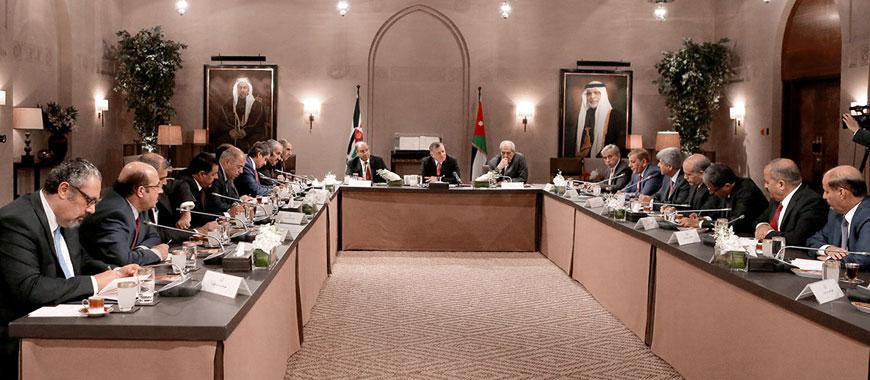You are here
Ministry sets fiscal decentralisation criteria
By Mohammad Ghazal - Sep 20,2017 - Last updated at Sep 20,2017
AMMAN — In a step to involve citizens in the decision-making process, the Finance Ministry on Wednesday launched a whitepaper that paves the way for the implementation of fiscal decentralisation across the country's governorates.
The project, supported by the USAID-funded Fiscal Reform and Public Financial Management Activity, seeks to enable the recently elected local councils across the governorates to set the priorities and needs of capital projects and services, fix budgets and monitor their spending in future, Ezzedine Kanakrieh, secretary general of the Ministry of Finance, told reporters on Wednesday.
"At present, there is centralisation when it comes to allocating finances for projects and even choosing which projects to be financed… under the fiscal decentralisation scheme, local councils will set funding priorities and manage the spending and the monitoring in the future as well," he said.
The whitepaper on fiscal decentralisation policy across governorates will be gradually discussed with local councils and all stakeholders in preparation for its implementation, he added.
"The scheme entails that local councils which were elected during the decentralisation elections decide the priorities and manage spending on development projects. Spending on capital projects will be decentralised to ensure more efficiency and better results," he added.
The government has allocated JD220 million for 2018 to spend on capital projects across the governorates, which will be handled by the local councils, he said.
"This amount does not include numbers allocated for projects that are already under implementation or projects that have national a involvement of more than one governorate like a highway for example… at the same time, financial allocations for municipalities will be continued. The JD220 million is only for the projects to be set, managed and monitored by the local councils across the governorates," he added.
Thirty per cent of the total amount will be distributed equally between governorates, while the remaining amount will be distributed based on several factors including the rate of poverty and unemployment in a certain governorate, the size of the governorate, the population, among others, he explained.
“The project will be implemented gradually and during the implementation we will be monitoring progress and performance,” the official added.
Meeting with stakeholders at Aqaba governor’s office, General Budget Department Director Mohammad Hazaimeh further explained that the remaining ratio will be distributed according to five criteria, according to the Jordan News Agency, Petra.
He said these include the size population (35 per cent), poverty ratio (25 per cent), unemployment rate (25 per cent), the size of the governorate’s area (5 per cent) and the existence or lack of economic establishments (10 per cent), explaining that the more economic establishments there are, the lower the share in the allocation will be.
Kanakrieh concluded that the idea of fiscal decentralisation is to enable local communities and elected local councils to decide how to spend allocations on priority development projects in their respective areas, noting that a committee was formed to oversee the implementation of the fiscal decentralisation plan.
Related Articles
AMMAN — His Majesty King Abdullah has stressed the importance of building the institutional capacities of governor offices, executive counci
AMMAN — Decentralisation is an advanced reform project to integrate citizens in prioritising economic, service and social projects and follo
AMMAN — The House of Representatives’ Financial Committee on Wednesday demanded that the JD300 million’s worth of allocated funds in the 201

















